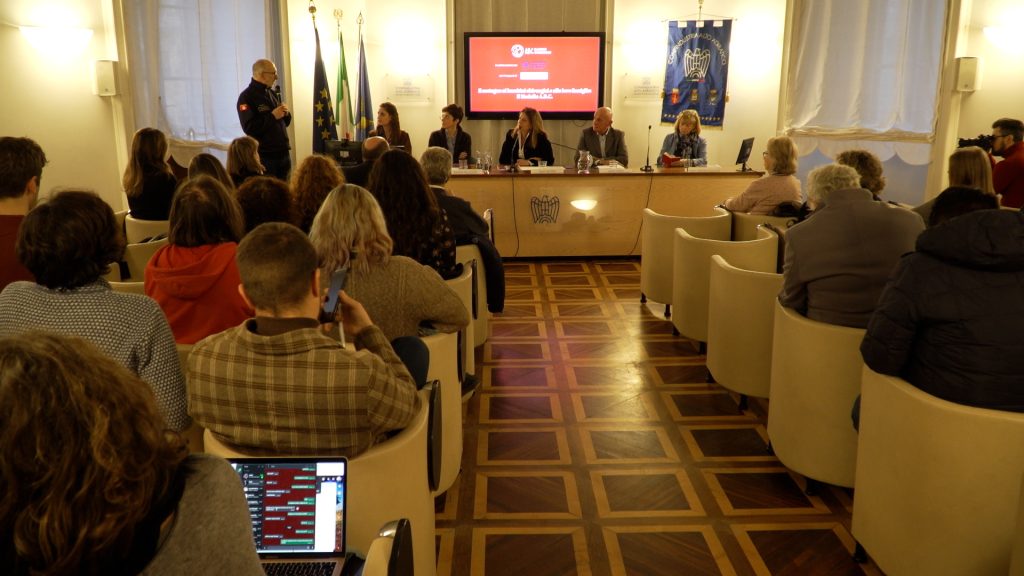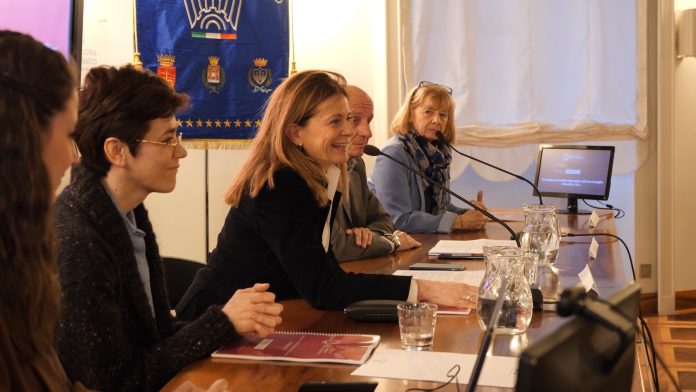by EH
A groundbreaking study assessing the effectiveness of A.B.C. Bambini Chirurgici’s support model for pediatric surgery patients and their families was unveiled today at a press conference in Trieste. The research, conducted by A.B.C. in collaboration with the University of Trieste, marks the first scientific evaluation of the nonprofit’s impact since its founding two decades ago.

The study, titled Support for Pediatric Surgery Patients and Their Families: The A.B.C. Model, was carried out by researcher Virginia Rinaldi under the scientific supervision of Professor Sandra Pellizzoni from the University of Trieste’s Department of Life Sciences. Funded by the Beneficentia Stiftung Foundation, the research employed a three-year monitoring period, gathering data through interviews and questionnaires to measure the effectiveness of A.B.C.’s initiatives and explore their potential replicability.
A Structured, Holistic Approach to Care
Since its establishment, A.B.C. has provided critical support to children born with congenital malformations, assisting them and their families throughout complex surgical journeys at I.R.C.C.S. Burlo Garofolo, Trieste’s renowned pediatric hospital. Over the years, the organization has evolved into a structured support system that extends beyond patients and families to include medical staff, hospital personnel, and local schools.
The study found that A.B.C.’s success lies in its systematic, evidence-based approach, characterized by:
- A well-organized internal structure
- A holistic framework addressing both medical and psychological needs
- Continuous evaluation of initiatives to ensure effectiveness
One of the most significant findings underscored the crucial role of A.B.C.’s housing assistance program. Families traveling to Trieste for their children’s surgeries benefit from six free accommodations, with 60 percent of surveyed families stating that access to this support influenced their decision to seek care in Trieste. Psychological counseling, particularly during prenatal diagnoses and post-surgical recovery, was also cited as essential.
Education and Social Reintegration
A.B.C.’s School Project, which facilitates the reintegration of pediatric surgery patients into their educational environments, emerged as another standout initiative. Local educators praised the program for its role in improving children’s emotional intelligence and interpersonal skills post-surgery. By promoting understanding and empathy, the project fosters a smoother transition back to school life.
Strengthening Hospital Collaboration
A.B.C. has long partnered with I.R.C.C.S. Burlo Garofolo to enhance patient and family support. While the study confirmed the high value placed on co-designed initiatives by medical staff, it also highlighted bureaucratic challenges that sometimes slow collaboration. The findings suggest that further institutional integration could enhance the effectiveness of these joint efforts.
The Power of Volunteers
Volunteers remain an indispensable component of A.B.C.’s model, with 90 percent of surveyed parents emphasizing their positive impact. The organization provides structured training to ensure volunteers are equipped to support families navigating the emotional and logistical challenges of pediatric surgery.
A Model for National Replication
The research positions the A.B.C. Model as a scalable framework that could be implemented in pediatric surgery departments across Italy. By transforming from a grassroots support group into a structured, data-driven organization, A.B.C. offers a replicable blueprint for integrating medical care with psychological and logistical assistance.
“This study validates our commitment to holistic, family-centered care,” said A.B.C. founder and director Giusy Battain. “We hope it will serve as a foundation for expanding our impact nationwide.”
With empirical evidence supporting its approach, A.B.C. stands poised to influence the future of pediatric surgical care beyond Trieste, offering a roadmap for compassionate, effective patient support in Italy and beyond.





























